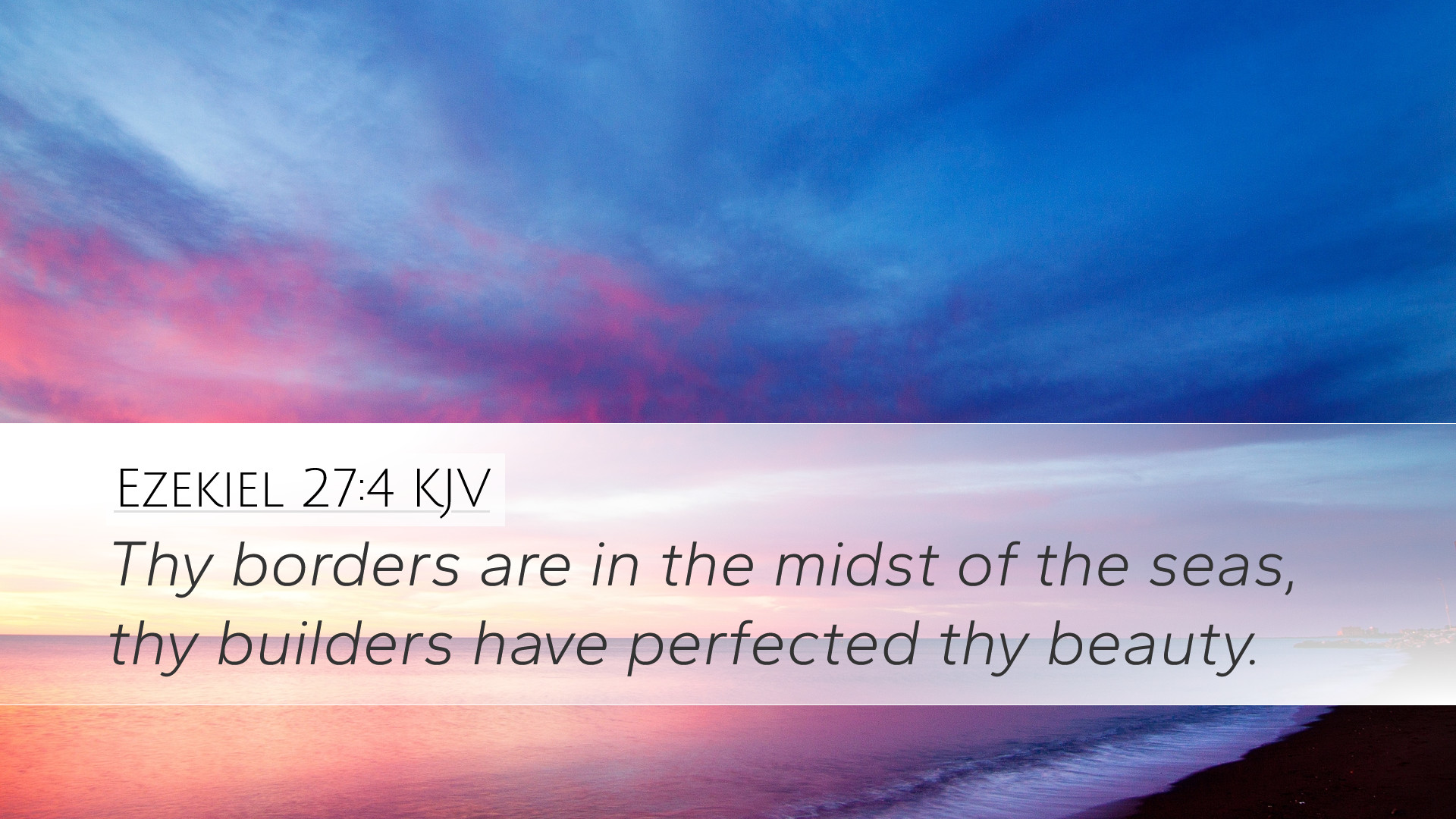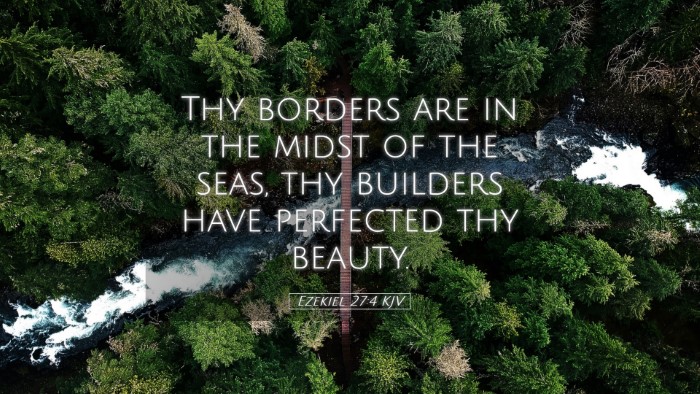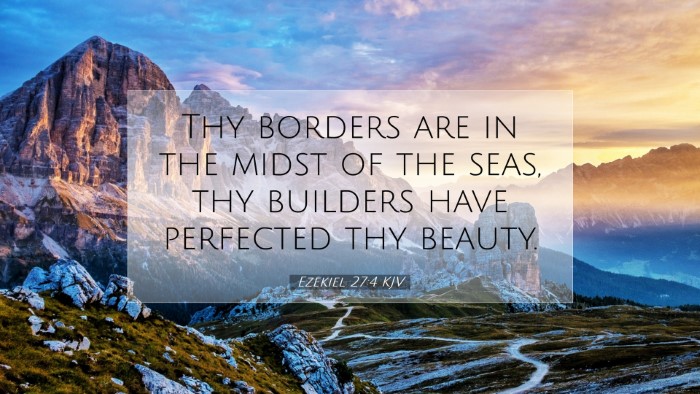Commentary on Ezekiel 27:4
Ezekiel 27:4 states: "Thy borders are in the midst of the seas, thy builders have perfected thy beauty." This verse is part of a larger passage in which Ezekiel describes the greatness and eventual downfall of Tyre, a prominent Phoenician city known for its trade and wealth.
The Context of Ezekiel 27
To understand Ezekiel 27:4, it is essential to consider the broader context of the chapter. This chapter is a lamentation over Tyre’s destruction and serves as an allegorical reflection on the hubris of nations that put their trust in worldly wealth and power.
The City of Tyre
Matthew Henry elaborates on the character of Tyre, describing it as a "noble city" that was positioned strategically for trade. The phrase "thy borders are in the midst of the seas" highlights Tyre’s location and its significance as a maritime power. Many merchants and traders relied on Tyre for their economic ventures, making it a center of commerce, wealth, and cultural exchange.
The Builders of Tyre
Verse 4 also mentions "thy builders have perfected thy beauty." This acknowledges the efforts of skilled artisans and builders who contributed to the grandeur of Tyre. Albert Barnes indicates that these builders were not only physical laborers but also represented the ingenuity and craftsmanship of the people who called Tyre home. The reference to "beauty" encompasses both the physical structures and the reputation of Tyre as a prosperous enclave.
Theological Implications
This verse raises significant theological implications, particularly about human pride and the transient nature of material success. Adam Clarke stresses that God is the ultimate architect of all creation and that nations may prosper temporarily, but their success does not secure immunity from divine judgment. Tyre’s beauty, while visible and admired, was ultimately subject to destruction due to its arrogance and reliance on riches.
The Temporary Nature of Earthly Glory
The commentary from Henry and Clarke reflects on the fleeting nature of greatness. Tyre, despite its splendor, is depicted as a city that would face God's judgment. This serves as a cautionary tale for contemporary nations and individuals who might seek their identity and security in superficial beauty and prosperity.
Lessons for Today
For pastors and students of theology, Ezekiel 27:4 offers valuable lessons:
- Dependence on God: The verse reminds us that human achievement, no matter how beautiful or prosperous, is ultimately futile without reliance on God's will and purpose.
- Critique of Materialism: It invites a critical examination of materialism and the cultural tendencies to idolize wealth and success.
- Preparation for Judgment: The eventual fall of Tyre serves as a reminder that all nations and individuals will face God's judgment, emphasizing the need for humility and repentance.
Conclusion
Ezekiel 27:4 serves as a poignant reminder of the dual nature of human enterprise: the beauty that can be achieved through effort and ingenuity, tempered by the reality of divine sovereignty and the certainty of judgment. In the light of contemporary issues facing societies today, such reflections are essential for fostering a deeper understanding of our dependence on God and the humility needed to navigate life’s transient rewards.


